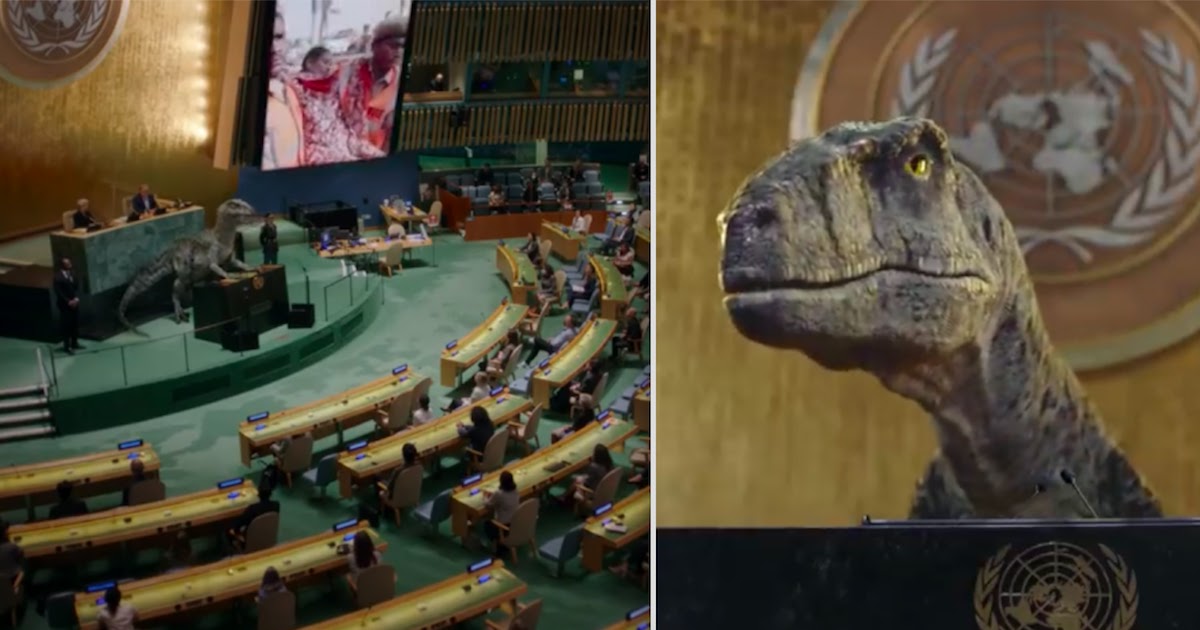
A new video, featuring a CGI talking dinosaur has been released by activists to encourage world leaders to do more to tackle climate change. The video release comes as world leaders gather in Glasgow, Scotland, at the COP26 summit to decide on how best to take on the climate emergency.
The dinosaur, called Frankie, appears in the United Nations building and then makes its way towards the stage before delivering an impassioned speech. The English version is voiced by Hollywood star Jack Black.
He says:
"I know a thing or two about extinction, and let me tell you, and you'd kind of think this would be obvious, going extinct is a bad thing. At least we had an asteroid, what's your excuse? You're headed for a climate disaster, and yet every year governments spend hundreds of billions of public funds on fossil fuel subsidies. Imagine if we had spent hundreds of billions of dollars per year subsidizing giant meteors. That's what you're doing right now."
Adding:
"You've got a huge opportunity right now, as you rebuild your economies and bounce back from this pandemic. This is humanity's big chance."
The video was the work of the United Nations Development Programme (UNDP), who were reacting to a new report that indicated that governments around the world are subsidising fossil-fuel companies by almost half-a-trillion US dollars a year, money that could be spent on green energy solutions and carbon-capture.
Michael Mann, a climatologist at The Pennsylvania State University, spoke to LiveScience, saying:
"Getting rid of fossil fuel subsidies is an important component of any comprehensive climate solution. The priority should be on cutting emissions. Getting rid of fossil fuel subsidies is one piece of that. But so are incentives for renewables and carbon pricing. I wouldn't want to put the onus on any of these mechanisms. We need them all."
While leaders at the COP26 summit have agreed to end deforestation by 2030, there is no clear agreement as of yet on action towards ending fossil-fuel use and advancing green technology.
[Based on reporting by: LiveScience]












COMMENTS